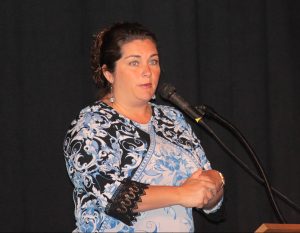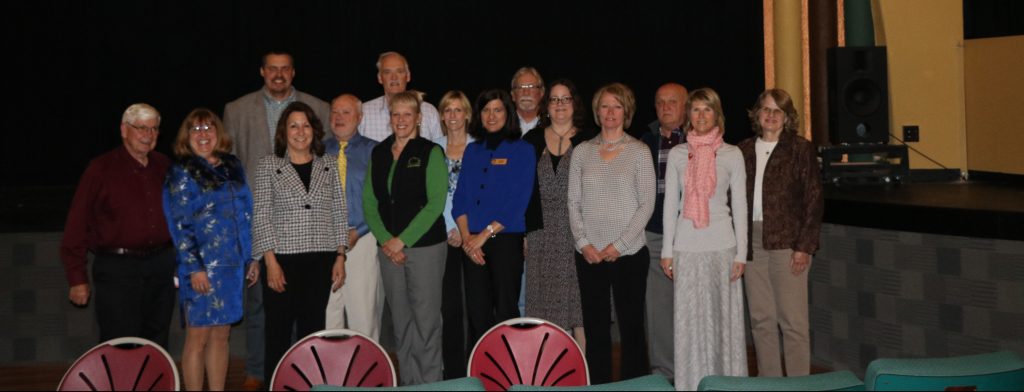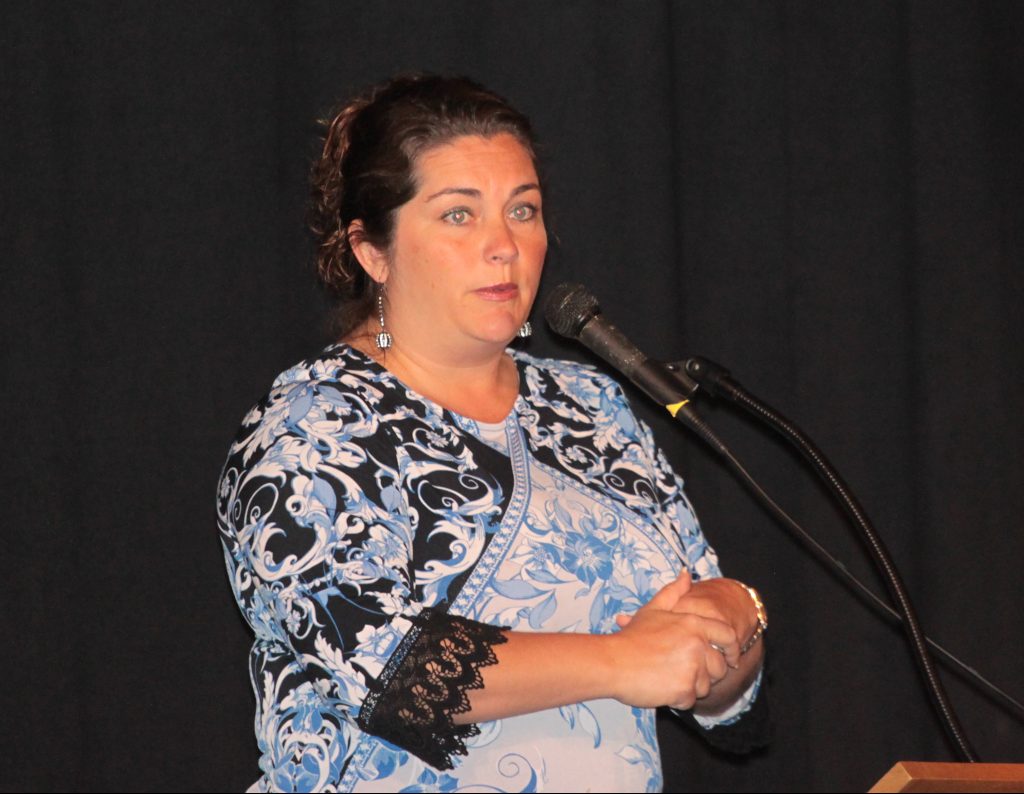Grow North Hosts Annual Meeting and Legislative Panel
Over 50 people attended the Grow North Regional Economic Development Corporation
Annual Meeting and Legislative Panel on Monday, May 23, 2017, at the Three Lakes Center
for the Arts. The event was sponsored by AT&T, a Cornerstone Partner of Grow North.
Wisconsin State Senator Tom Tiffany and State Representative Jeff Mursau answered
questions on the region’s priorities for economic development, workforce development,
Fab Labs, wood products and policy issues. Representatives from U.S. Senator Ron
Johnson’s office, U.S. Representative Sean Duffy and Governor Scott Walker’s office also
attended.

Grow North has undertaken four initiatives for the region: broadband expansion, increasing entrepreneurship, promoting the forest products industry and workforce development. The legislators addressed a number of issues relating to these initiatives during the panel.
Senator Tiffany said that he and other legislators are working hard to help rural schools, and was understanding that small districts face additional problems that other districts might not encounter. He acknowledged that high quality education is necessary to workforce development.
“We are urging the Department of Instruction to be more flexible in terms of qualifications for teachers, in terms of being able to deliver content to the schools,” Senator Tiffany said. “Not lifting the teaching requirements that teachers have, but if you have someone who has private sector experience and they don’t necessarily have the teaching certificate for something like a Fab Lab, but they have the technical expertise, free them to be able to fulfill that teaching role. That’s one thing we’re looking at to give schools more flexibility, especially small schools who might not be able to hire someone full time in a teaching position.”
The legislators were also asked about the Nursing Assistant Program open to middle and
high school students, and the provision limiting the program to students 16 years and
older. Both Representative Mursau and Senator Tiffany said they weren’t aware of the
provision limiting the opportunities for middle school students, and each said they would
investigate the issue further when they returned to Madison.
“This is how we find out things that don’t work in government,” Senator Tiffany said.
“When people bring issues like this that we don’t know about, and we really appreciate that
and we hope we can put something in place to fix it,” Senator Tiffany said.
The legislators discussed the increased funding in Governor Walker’s budget for rural
broadband expansion. Last year broadband expansion grants totaled $1 million and the
new budget request is to increase funding to $15 million. Senator Tiffany told attendees to
get their broadband expansion plans in order to apply for the expanded grant program.
Senator Tiffany discussed the desire to change some practices and increase the number of
forest products in the region. He referenced a study funded in the 2013 budget which
evaluated the impediments to harvesting the full value in the forests. Senator Tiffany said
by extrapolating the data from the study, the state had lost almost $30 million in 20 years.
He said by changing some practices, the industry could increase the amount of money
generated in the forests and still practice environmentally sound harvesting.
Representative Mursau also spoke about the harvesting on national forests opening up
with the Good Neighbor Authority (GNA) program, which started in 2014. There are 1.5
million acres of forest land in the Chequamegon-Nicolet National Forest, and timber
harvests have been stagnant for the past 20 years.
“Wisconsin is in a critical position,” Representative Mursau said. “The forest industry
infrastructure out west is gone and it could take up to 10 years to build it back up. We still
have our mills here in Wisconsin, and the rest of the country is looking to our state to see
how we will handle the Good Neighbor Authority.”
Senator Tiffany said there were increased funds for the GNA in the state budget, but that
the state still has a long way to go. He also stressed the need for balance in harvesting the
forests of northern Wisconsin.
After the panel, Collette Sorgel, Grow North President, thanked everyone for coming to the
event and said it was a great opportunity for everyone to get information to and from our
legislators. The attendees were then able to mingle with representatives and voice concerns
not covered in the panel. Sorgel also thanked Oneida Village Inn who provided the coffee
and snacks, Bob Weach who provided his photography services and Three Lakes Center for
the Arts provided the Venue.

Vicky Oldham was elected President, Derek Heikkinen as Vice President, Roger Luce as
Treasurer, and Lisa Sage as Secretary.
EDC Representatives: Wendy Gehlhoff, Florence County; Mark Ferris, Forest County; Angie
Close, Langlade County; Ken Maule, Lincoln County; Open Seat, Marinette County; Paul
Ehrfurth, Oconto County; Roger Luce, Oneida County; Bob Egan, Vilas County.
Tribal Representatives: Melissa Doud, Lac du Flambeau Band of Lake Superior Chippewa
Indian; Cara Kulhanek, Forest County Potawatomi; Open Seat, Sokaogon Chippewa
Community.
At-Large Representatives: Sandy Bishop, Nicolet College; Troy Brown, Kretz Lumber Co.;
Ben Niehaus, K-12 Representative; Carolyn Ritter, Vilas County Board; Leah Van Zile,
Wisconsin Public Service.
Board terms are effective July 1, 2017, through June 30, 2018.
For more information about Grow North Regional Economic Development Corporation,
visit http://www.grownorth.biz.

